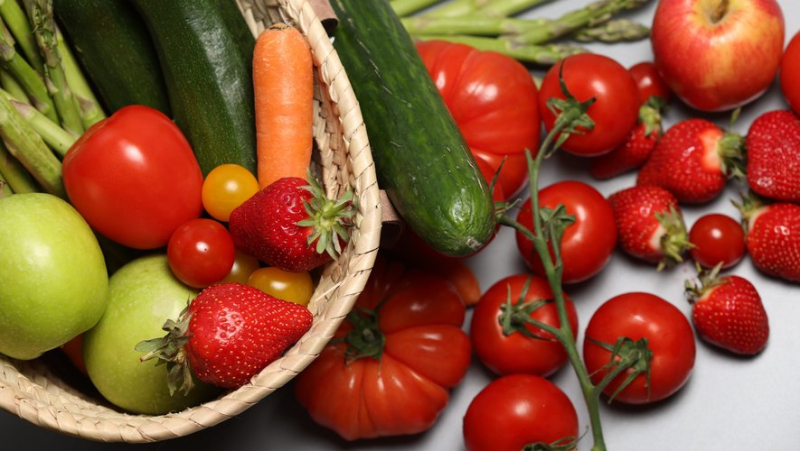Traces of pesticides found in two thirds of fruits and almost half of non-organic vegetables, according to a study

Générations Future a étudié 21 fruits et 31 légumes. ILLUSTRATION MAXPPP – Arnaud Journois
Less than a month after the announcement of the pause of the Ecophyto plan in France, a study carried out by Future Generations reveals that more than two thirds of fruits and almost half of non-organic vegetables are contaminated by pesticides.
While the policy of reducing the use of pesticides in France seems to be at a standstill, with the abandonment of the Nodu indicator from the plan Ecophyto, the NGO Générations Futures reveals in a survey published this Thursday, February 22 that nearly two thirds of non-organic fruits (73.1%) and almost half of vegetables (45.8%) contain at least one pesticide residue.
21 fruits and 31 vegetables studied
Among the 21 fruits studied in 2017 and 0221, some are in a particularly critical situation: 93.8% of cherry samples contain traces of at least one pesticide. More than 80% even contain traces of several pesticides. Grapefruits (91.1%), nectarines and peaches (90.2%), grapes (88.3%), or even clementines, tangerines and oranges (87.2%) ;nbsp;%) are also among the worst students.
The quantity of pesticides contained in certain fruits exceeds the maximum residue limit legally authorized in foodstuffs. This is particularly the case for passion fruit (37, 2% with at least one pesticide residue exceed the limit), pineapples (22.6%) and pomegranates (18.8%).
For the 31 vegetables studied, 78.3% of celeriac, 69% of melons and 67.7% of endives studied contained at least one pesticide residue. Those exceeding the MRLs the most are, in order, fresh herbs (13.8%), celeriac (12.7%) and salads (12.1%). %).
Implementation of proactive agricultural policies
These results underline "that the presence of pesticides in plant foods remains more relevant than ever and requires the establishment of proactive and binding agricultural policies aimed at to reduce our dependence on these synthetic inputs,” emphasizes Générations Futures.
To calm the anger of farmers, Prime Minister Gabriel Attal announced on February 1 the "pause" of the Ecophyto plan, aimed at reducing the use of pesticides in France, "the time to put in place a new indicator" measurement to substitute the current one, the "Nodu".
The government has reaffirmed that it will not abandon its objective of reducing the use of pesticides by 50% by 2030. With this in mind, a decree aimed at banning the use ;importation of food products treated with thiacloprid, a neonicotinoid considered dangerous, should be published this Friday, February 23.




